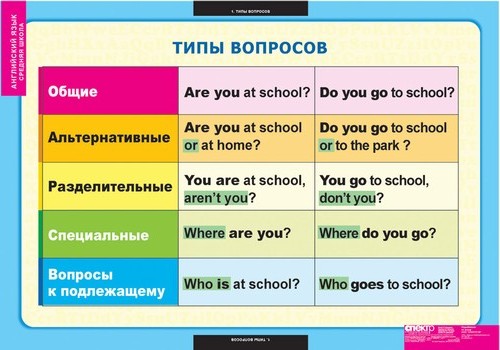Конспект урока «Interrogative Sentences» по английскому языку для 6 класса
Муниципальное автономное общеобразовательное учреждение
«Лицей города Троицка»
Конспект
урока по английскому языку по теме «Interrogative Sentences» («Вопросительные предложения»)
в 6 классе
подготовила:
учитель иностранных языков
Камелавкина Елена Викторовна
г. Троицк
2012
Коммуникативная цель урока:
Совершенствование речевых навыков, актуализация изученного материала по теме.
Задачи урока:
Практическая:
1) семантизация лексики;
2) совершенствование фонетических навыков;
3) развитие навыков диалогической речи;
Познавательная: Расширение лексического и грамматического кругозора.
Развивающая: Развитие фонематического слуха и произвольного внимания.
Воспитательная: воспитание культуры и вежливости, интереса к изучаемому предмету.
Тип урока: урок закрепления знаний.
Форма урока: стандартная
Оснащение: картинки, слайды со схемами вопросов.
Ход урока
I) Организационный момент.
Good morning, children! I am glad to see you. I hope you are fine. How are you, children?
T- P1, P2, P3
-What is the date today? What day of the week is today? Who is absent? Why is he (she) absent? What’s the weather like today? What’s temperature today? Are you ready for a lesson?
II)Речевая зарядка.
Введение в языковую среду. Постановка задач урока
Our theme is «Questions»
What are we going to speak about? (Pupils answer).
Yes, you are absolutely right. We are going to speak different types of questions.
Do you often use questions in your speech?
What kind of questions do you know? Let’s name them (Pupils answer).
Now tell me please, what’s the Russian for:
-
a general question
-
a question to the subject
-
special questions
-
alternative questions
-
tail-questions (or tag-questions) (Pupils answer)

III) Фонетическая зарядка.
Let’s read and translate some useful words, you can see them on the blackboard.
The words:
-
a subject
-
a predicate
-
an auxiliary verb
-
a pronoun
-
the first form of the verb
-
the second form of the verb
-
the third form of the verb
-
a Wh-word
IV) Грамматический практикум
a) Now tell me please, how is General question formed. (Pupils answer)
All right, let’s write the scheme on the blackboard.
An auxiliary verb = a pronoun = a predicate and other members of the sentence.
Let’s write the example… What’s the English for: Она всегда ходит в школу?
Yes, you are right. “Does she always go to school?”
Now tell me, what auxiliary verbs do you know? (Pupils answer and give examples)
Possible examples:
Did she watch TV yesterday?
Will she go to school tomorrow?
Is she dancing now?
Was she sitting at the table when he came in?
Can you count?
Must you wash your hands?
What else do we know about these questions? They require answers “Yes” or “No”.
What’s the Russian for ‘require’? Yes, you are right – ‘требовать’
Who can give me the example?
E.g.: Do you know Egor? – Yes, I do.
(Pupils ask questions to each other and answer them)
b) Let’s turn to a Question to the subject.
How is it formed? Does it require an auxiliary verb? (Pupils answer)
Now let’s write the scheme.
Who (i.e. an interrogative word) = a predicate and other members of the sentence
Saying Who, we mean (he, she or it), so the ending depends on it. (Paul, translate my sentence)
-
Thank you. Let’s write down some examples.
“Who knows him?
Who is listening to music?
Who will help me?”
Now I want to listen to your examples. (Pupils give their examples)
Well done.
c) And what about Special questions? What do we know about them?
(Pupils answer)
So, the scheme is:
An interrogative word = an auxiliary verb = a pronoun = a predicate and other members of the sentence (of course without the one we are asking about)
By the way, what interrogative words do you know? (Pupils answer)
Possible answers: what, what … do, where, when, how many, how much ….
And what about the examples? (Pupils ask questions to each other and answer them)
Possible variants: Where do you live? – I live in Troitsk?
When did you go to school yesterday? – I went to school at 8 o’clock yesterday.
d) We don’t often use Alternative questions, but we also need them.
So, they are formed as general questions but there is a special word OR and we must give the variant.
E.g.: Do you live in Moscow or in London?
Is she dancing or eating?
Your examples…
(Pupils ask questions to each other and answer them)
e) And now, your favourite Tail-questions.
Of course, you remember that we leave the sentence without any changes, but we write the tail, which consists of an auxiliary verb (+not) + a pronoun. Nick, translate the sentence.
If the sentence is positive, the tail is negative and otherwise.
So, what about the examples?
He lives in Odessa, doesn’t he?
We can’t sing, can we?
What about your variants? (Pupils ask questions to each other and answer them)
Well, do you remember how we translate this tail into Russian? Right you are – ‘не так ли, не правда ли?’
V) Развитие навыков диалогической речи.
Let’s try to imagine that you meet your classmate for the first time and want to make friends with him. Make up the dialogues using all types of questions. I give you 5 Minutes.
(Pupils make up dialogues and answer them)
VI) Заключительный этап. Подведение итогов.
Your marks for the lessons are…
Now open your day-books, write down you home task…
Thank you for your work, you were very active, it was a pleasure to work with you.
You may be free. Have a nice day.
Список использованной литературы
-
Верещагина И.Н., Афанасьева О.В. Английский язык 4 класс (ч.2) – Учебник для 4 класса школ с углублённым изучением английского языка – М.: Просвещение, 2008
Здесь представлен конспект к уроку на тему «Interrogative Sentences», который Вы можете бесплатно скачать на нашем сайте. Предмет конспекта: Английский язык (6 класс). Также здесь Вы можете найти дополнительные учебные материалы и презентации по данной теме, используя которые, Вы сможете еще больше заинтересовать аудиторию и преподнести еще больше полезной информации.
